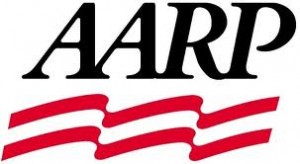The organizations below are, like you, dedicated to ensuring the sustainability of public programs that provide access to affordable health care. But we write today to express our deep concern that provisions being advanced by the United States Trade Representative (USTR) for the Trans-Pacific Partnership (TPP) Agreement will undermine this goal by limiting the ability of states and the federal government to moderate escalating prescription drug, biologic drug and medical device costs in public programs. We are also concerned that the final trade agreement will bind the U.S. to a 12-year market exclusivity period for brand-name biologic drugs, contrary to the Administration’s proposal in its most recent and previous budgets to reduce the exclusivity period.
Click here for a printable PDF
With respect to policies used by public programs to manage spending on prescription drugs and medical devices, the following are examples of existing laws or proposals that could be subject to challenge by manufacturers under the Korea free trade agreement and the reported TPP proposals made by the USTR:
- The Affordable Care Act’s discounts for prescription drugs under Medicare Part D;
- The Administration’s proposal to save $134 billion over 10 years through rebates under the Medicare program for low-income beneficiaries;
- Section 340B of the Public Health Services Act which includes a formula that the Department of Health and Human Services uses to set reduced prices for medicines supplied for outpatient care through nonprofit clinics, community health centers and safety net hospitals;
- Use of preferred drug lists and other mechanisms that state Medicaid programs have implemented to control costs;
- Application of comparative research funded by the Affordable Care Act, which will allow payers to make reimbursement decisions based on clinical comparisons of treatments; and
- Decisions by state Medicaid programs to remove drugs from their formularies, because they do not prove to be efficacious or because they have significant health risks.
While the free trade agreement with Korea included a footnote that excluded Medicaid from the pharmaceutical and medical device provisions in that agreement, there is at least one press report that New Zealand, one of the TPP countries, has told the United States that the reimbursement proposal is completely unacceptable unless the United States were to apply it to all U.S. federal or state-level drug pricing and reimbursement programs, including Medicaid. [i]
We are also concerned that the reported U.S. proposal requires a lopsided appeals process that affords rights only to manufacturers and not to other stakeholders. Like the agreement reached with Korea, the reported U.S. proposal for TPP sets a standard for reimbursement amounts that is based on “competitive market-derived prices” or amounts that “appropriately recognize the value of the patented” products. Preferred drug lists, statutorily specified discounts or rebates would violate these standards, as would reimbursement policies that discourage the use of costlier new drugs or treatments that are not more effective than existing drugs or treatments.
Lastly, we urge the Administration to make the negotiating process transparent. While USTR proposals are developed in close and formal consultation with the pharmaceutical and medical device industries through the Industry Trade Advisory Committee, this process excludes health care advocates and the broader public. While the USTR may have a position that its TPP proposals will not affect existing U.S. laws or limit choices available to future lawmakers, the ultimate arbiter of these provisions will not be the USTR, but will be international arbitration forums. That makes it critical that negotiators have access to a full range of views and analysis through an open and public process.
We appreciate that international trade has the potential to raise the standard of living and quality of life for people in the United States and around the world. However, the proposals that have been advanced by the USTR related to the pharmaceutical, biologic and medical device industries could do the opposite by undermining access to affordable health care for millions in the United States and around the world. As trade negotiations move forward, we urge you to ensure that the TPP agreement and future trade agreements do not limit the tools available to states or the federal government to manage pharmaceutical and medical device costs in public programs and that agreements do not bind the U.S. to a 12-year exclusivity period for brand-name biologic drugs. We further urge that the process be made transparent to allow public input.
Thank you for considering our concerns.
Sincerely,
AARP
Alliance for Retired Americans
Alliance for a Just Society
American Federation of State, County and Municipal Employees
Center for Medicare Advocacy
Coalition on Human Needs
Community Catalyst
Consumers Union
Families USA
Health Care for America Now
Medicare Rights Center
National Association of Counties
National Committee to Preserve Social Security and Medicare
National Senior Citizens Law Center
National Women’s Law Center
cc: The Honorable Kathleen Sebelius, Secretary, Department of Health and Human Services
Sylvia Mathews Burwell, Director, Office of Management and Budget
Ambassador Michael B.G. Froman, U.S. Trade Representative
Marilyn B. Tavenner, Administrator, Centers for Medicare and Medicaid Services
Cindy Mann, Director, Center for Medicaid and CHIP Services
Elizabeth Richter, Acting Director, Center for Medicare
—————————
i Inside U.S. Trade, November 4, 2011.





